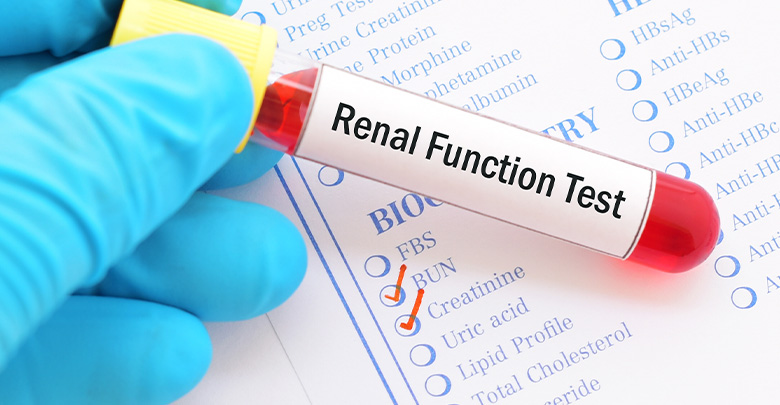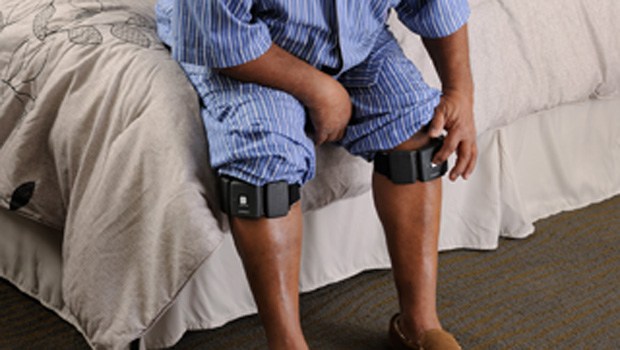The 5 Stages of Kidney Disease
When your blood sugars are high, your kidneys pay a big price in reduced function, increased infections, and permanent damage

Your kidneys are critical to the ongoing function of your body but their performance relies heavily on healthy blood sugar levels.
Nephropathy is one of the many complications that can develop in a person with diabetes — generally due to consistently high blood sugar levels. Also referred to as “kidney disease” or “diabetic kidney disease,” it can worsen to the point of needing daily/weekly dialysis, kidney transplant, or death.
Let’s take a closer look…
What is kidney disease?
Your kidneys do far more than managing your urine output. According to the National Kidney Foundation (NDK) your kidneys are responsible for:
- Filter out waste, especially after eating protein
- Regulate the balance of your fluid levels
- Contribute to producing red blood cells
- Contribute to managing your blood press
- Contribute to maintaining healthy bones
Factors that increase your risk of kidney disease
The NIDDK states the following variables that increase your risk of developing kidney disease.
- Length of time you’ve had diabetes
- Consistently high blood sugar levels
- High blood pressure
- African Americans, Indians, Hispanics, and Latinos have an increased risk
- Family members and family history with kidney disease
High blood sugars damage blood vessels in your kidneys
The tricky part for those with diabetes is the millions of blood vessels that contain thousands of small holes designed to filter waste from your blood. Anything unwanted in your system is supposed to filter through those holes and be excreted through your urine.
Persistently high blood sugar levels damage blood vessels throughout your entire body, including the blood vessels in your kidneys.
Over time the damage incurred from high blood sugar levels reduces the effectiveness of these holes and they begin to leak.
Protein, in particular, begins to leak through your kidneys and passes into your urine.
This is referred to as microalbuminuria. And while it’s normal to have a tiny amount of protein in your urine, larger amounts are a clear sign of struggling kidneys and early stages of kidney disease.
High blood sugars damage nerve endings in your kidneys
While it’s easy to assume that your body knows it’s time to pee because you feel the sensation of a full bladder, it’s actually a message from your brain that tells your bladder when you need to pee!
Consistently high blood sugar levels can damage the nerves that help your brain communicate with your bladder.
If these nerves are damaged, you essentially become less aware that your bladder is full. When you have an overfull bladder, urine backs up into your kidneys which increases pressure and stress on your kidneys.
Over time, this backed-up pressure permanently damages your kidneys.
High blood sugars damage lead to kidney infections
People with kidney disease also struggle with their urinary tract because the longer the urine sits in your bladder, the longer the excess sugar in your urine has to feed bacterial infections.
This can easily lead to frequent urinary tract infections (UTIs) and yeast infections.
UTIs are treated with antibiotics but until your blood sugar levels and kidney health are improved, you’re likely to develop UTIs over and over and over.
Fortunately, the earliest stages of nephropathy offer you a chance to take action by improving your blood sugars and working with your healthcare team to follow other guidelines for those with early kidney disease.
The 5 Stages of Nephropathy
The American Diabetes Association outlines the 5 stages of kidney disease as follows:
- Stage 1 with normal or high GFR (GFR > 90 mL/min): This stage is reversible for many patients by immediately improving blood sugar levels and improving other lifestyle habits around exercise, nutrition, alcohol, and cigarettes.
- Stage 2 Mild CKD (GFR = 60-89 mL/min): This stage is thought to develop silently and while a patient likely wouldn’t notice they haven’t, most have developed lesions on their kidneys by this stage. While it cannot be reversed at this stage, improving your blood sugars immediately can have a tremendous impact on your lifespan and quality of life despite this diagnosis.
- Stage 3A Moderate CKD (GFR = 45-59 mL/min) & Stage 3B Moderate CKD (GFR = 30-44 mL/min): Both 3A and 3B are tricky because a significant amount of damage has been done, and while you should absolutely focus on improving blood sugar levels and other lifestyle factors, you’ll need further testing and care to help maintain your kidney function.
- Stage 4 Severe CKD (GFR = 15-29 mL/min): Also referred to as “overt diabetic nephropathy,” this stage comes with consistently high levels of protein in your urine and low as 40% of your normal kidney function. This stage also absolutely requires regular dialysis to filter your body’s fluids for you since your kidney is struggling to do so.
- Stage 5 End Stage CKD (GFR <15 mL/min): Also referred to as “end-stage renal failure due to diabetic nephropathy,” it does not mean death is imminent. Yes, you will need a great deal of medical care to stay alive, but people container live for years after reaching Stage 5. A growing number of people also choose palliative care at this stage.
Kidney Disease is Preventable
For most people, diabetes-related kidney disease is preventable. By following these lifestyle habits, the NIDDK says you can greatly reduce your chances of developing kidney disease and prevent existing kidney damage from worsening.
- Don’t smoke! Quit smoking today!
- Maintain an A1c under 7.0 percent
- Reduce high blood pressure with medications, weight-loss, diet, etc.
- Avoid highly processed, high-sodium foods
- Exercise for 30 minutes every day
- Lose weight & maintain a healthy weight
- Focus on a whole-foods diet, aiming for 80 percent healthy and 20 percent less-than-perfect
- Limit processed foods high in poor quality fat and sugar
These lifestyle habits are ideal for anyone whether or not they’re concerned about kidney disease and diabetes! If it’s overwhelming to improve all of these habits at once, pick two and start there. Bit by bit, you’ll crave these healthier habits because you’ll feel better on a daily basis!




